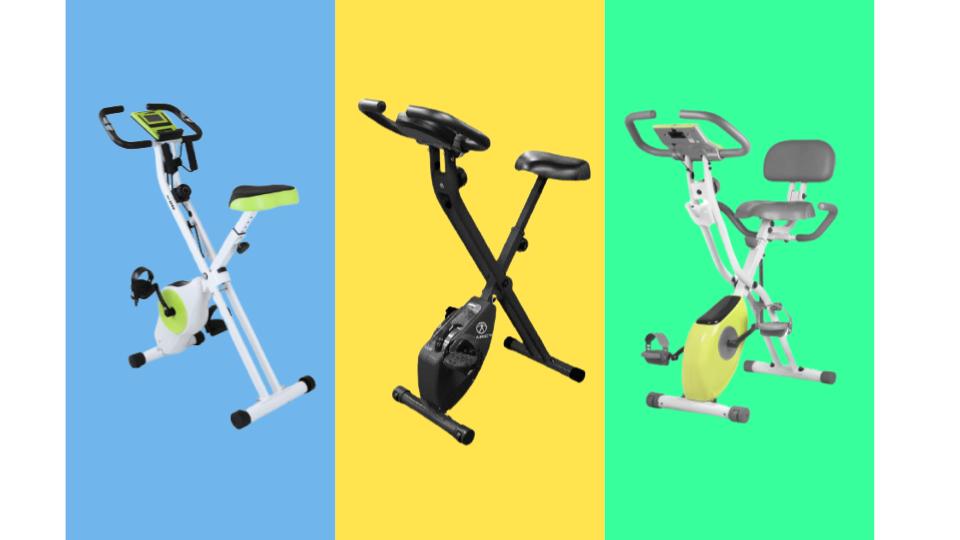If you’re thinking about getting a nutritionist certification, good call. According to the US Bureau of Labor Statistics1, employment of nutritionists and dietitians is expected to grow 7% from 2022 to 2032, which is faster than the average for all other occupations. Now, more than ever, people need expert guidance on healthy eating and general wellness.
But if you’re searching “how to become a certified nutritionist,” you’re probably already convinced that this is a worthwhile career. So instead of selling you on the merits of a nutrition certification, let’s jump right into the steps of how to get one.
RELATED: Nutritionist Certification vs Degree
1. Figure Out Your Ideal Career Path
The first thing you want to do is figure out what your ideal career path looks like. Do you want to focus on sports nutrition or general weight management? Would you prefer to work with adults or in pediatric care? Do you want a holistic nutrition program or do you want to study more mainstream nutrition science?
Because each of these fields of nutrition has a different scope of practice, the answers to these questions will inform which type of nutrition program is right for you. You don’t necessarily have to pick just one path either. Some schools offer dual certifications or combined programs that let you pursue more than one avenue.
Make sure to look up nutrition regulations in your state, too. Some locations require a state license to practice nutrition, so you want to make sure you’re choosing a path that will allow you to obtain the qualifications you need to do what you want.
2. Find Your Program
Once you’ve determined your career goals, the next step is finding a program that aligns with those goals and what you hope to learn. There are a lot of options out there, and some are better than others.
In addition to finding a certification program that can teach you what you want to know, you also need to think about the prerequisites required to enter the program. Nutrition certifications can really run the gamut.
Some don’t have any prerequisites; others require a bachelor’s degree or a transcript of completed coursework in a related field. Some more advanced programs require a master’s degree or higher. Check the prerequisites first to make sure you qualify for the program.
You also want to consider the format. Most nutrition certification programs are online, but some may require some in-person attendance or supervised practice experience once your coursework is complete.
Some are part-time, while others are full-time. Most allow you to go at your own pace, but some may require live attendance in scheduled classes or Zoom calls. Make sure you read through all of the requirements to double-check that they work for you before committing to a program.
Regardless of which program you choose, you can expect to take general science classes, like biochemistry and biology, as well as more focused nutrition courses. Some may even delve into food science, which is a big part of the coursework required to become a registered dietitian.
If you need help narrowing down your options, here are some quick thoughts about a few nutrition certification programs (some of which the GGR team has tested) to get you started.
Precision Nutrition
This certification course is unique in that it combines classes on nutritional science and behavior change coaching. Most certification programs focus on nutrition science, but don’t necessarily tell you how to apply that to the real world. This is a fully online program, and it’s self-paced so you can take as much time as you need to complete it. There are no prerequisites.

Read our full Precision Nutrition Certification review.
NASM Certification Program
Like the ISSA, the NASM is largely focused on fitness, but its nutrition certification can definitely be a standalone program. You’ll learn nutritional science, behavior change strategies, and how to apply your education to nutrition coaching.
This is a self-paced program, but NASM says you can complete it in as little as four weeks.
Check out our full NASM Nutrition Certification review.
American College of Healthcare Sciences Certificate in Holistic Nutrition Coaching
This program offers a holistic approach and focuses on rebalancing the body and restoring overall wellness through nutrition. There’s also specialized training on how to establish your own practice. This program will also get into specific regulatory and licensing requirements from your state so you can ensure compliance with your scope of practice.
I personally took this program after getting my Bachelor’s degree in nutrition and deciding I wanted to go an alternative route. I chose it because the school is accredited by the Distance Education Accrediting Commission (DEAC) and obtaining a certification meets one of the requirements for becoming board certified in holistic nutrition.
ISSA Nutrition Certification
At its core, the ISSA is focused on fitness professionals. While this course can be a standalone option, it’s a really great complement for certified personal trainers who want to add nutrition care to their portfolio.
This is another go-at-your-own-pace program and it requires a high school diploma and a CPR/AED certification (by the time you complete your certification exam).

Read our full ISSA Nutrition Certification review.
Certified Nutrition Specialist
The certified nutrition specialist (CNS) designation from the Board for Certification of Nutrition Specialists (BCNS) is one of the most advanced certification programs out there. It has extensive prerequisites, and there are three pathways you can take to get there.
The TL;DR is that you must have an advanced graduate degree, like a master’s in nutrition, doctoral degree, or master of science in a clinical field that’s related to nutrition. This also requires at least 1,000 hours of supervised practice before you can take the certification exam.
This could be worthwhile for those who already have advanced degrees but want to switch focus to clinical nutrition. Many state government agencies recognize the CNS credential as a pathway to nutrition licensure without an RD.
If you still want to browse, here are some other options you can look into:
- Institute for Integrative Nutrition
- eCornell
- American Council on Exercise (ACE)
- National Council on Strength and Fitness (NCSF)
RELATED: NCSF Certification Review
3. Complete All Classes and Tests
Once you’ve enrolled in a course, the next (maybe obvious) step is to complete all the education requirements. This may or may not include coursework, projects, tests, and/or supervised practice.
Once you’ve finished everything with satisfactory grades, you might have to take a comprehensive certification exam that tests your knowledge about everything you learned. This really depends on the program, though. Some give smaller quizzes at the end of each module instead of one bigger exam.

You might also have the option to take some sort of widely recognized board certification. For example, if you decide to take a holistic nutrition path, there is a board certification pathway offered by the National Association of Nutrition Professionals.
4. Maintain Any Required Continuing Education Credits
Some certification programs require you to complete continuing education courses in order to maintain your certification. Make sure you check with your school and any relevant certification agencies to see what’s required of you.
If you don’t complete the required continuing education courses in time, it can cause a lapse in your certification and you may have to retake your certification program.
RELATED: Best Continuing Education Courses for Personal Trainers
How to Become a Certified Nutritionist: Final Thoughts
There are many pathways to nutrition certification, but before starting on one, figure out your career goals and what type of nutrition you want to learn. You’ll also want to get familiar with the laws in your state, as some require you to be a licensed nutritionist to practice, and not all certification programs can get you there.
How to Become a Certified Nutritionist: FAQs
Which requires more schooling: a dietitian or a nutritionist?
In general, it requires more schooling to become a dietitian. As of January 1, 2024, new guidelines from the Commission on Dietetic Registration (CDR) require anyone who wants to become a registered dietitian nutritionist (RDN) to complete at least a master’s degree program. This program is specialized and must be approved by the Accreditation Council for Education in Nutrition and Dietetics (ACEND).
After you complete the graduate degree program, you also need to complete a 1,200-hour supervised internship that rotates through medical nutrition therapy, food service, and other areas of public health. Once all that is completed, you can sit for the multiple-choice RD exam to officially become a registered dietitian. In short, it can take as long as six years (or more) to become a dietician, while many nutrition certification programs can be completed in less than a year.
If you want to learn more about becoming a registered dietitian, the Academy of Nutrition and Dietetics2 lays everything out for you.
What is the difference between a certified nutritionist and a dietitian?
The difference is in the education and scope of practice. The “dietitian” credential is federally regulated. To earn it, you need to complete a specific accredited program, then a supervised internship and pass an exam. The term “certified nutritionist” isn’t regulated and can apply to anyone who has successfully completed some type of certification program in nutrition.
Certified nutritionists can give general dietary advice to help clients reach their health goals. Dietitians can create specialized diets and work closely with those with chronic health issues. Often, certified nutritionists open a private practice, work with personal trainers, or consult with clients alongside other medical professionals. Dietitians can work in more clinical settings, like hospitals, nursing homes, and in-patient care facilities.
Is a nutrition coach the same thing as a nutritionist?
“Nutrition coach” and “nutritionist” are both unregulated terms, so they can mean the same thing. It really comes down to schooling and what you’re doing with your job title. Nutrition coaches and nutritionists are not the same thing as dietitians, though. However, “nutritionist” is a broad term that can encompass dietitians. All dietitians are nutritionists, but not all nutritionists are dietitians.
RELATED: Nutritionist Certification vs Degree
These statements have not been evaluated by the Food and Drug Administration. This product is not intended to diagnose, treat, cure, or prevent any diseases.
References
1. U.S. Bureau of Labor Statistics. (2023, September 6). Dietitians and nutritionists : Occupational outlook handbook. U.S. Bureau of Labor Statistics.
2. Become a registered dietitian nutritionist. Academy of Nutrition and Dietetics: eatright.org. (n.d.).






